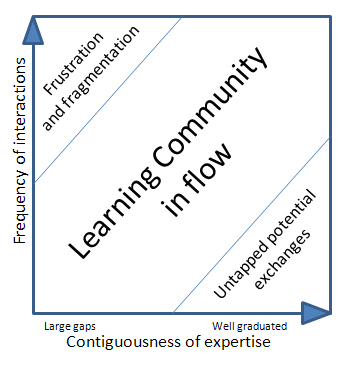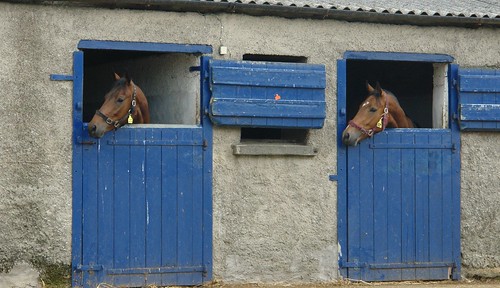I spent yesteday at Henley Management College in a research workshop facilitated by Richard McDermott. We were exploring a number of research topics relating to the development, transfer and retention of expertise. We tabled a number of topics, including mentoring, aging workforce, knowledge harvesting and salvage, lifelong learning and communities... we're going to have to focus! Then I came across this recent post on Connectivism from Helen Nicol, who has talent for spotting good stuff in this arena.
Helen's thesis is that "any community of of practice must have a mix of novices, experts and all those in between, which in itself has implications for the moderation or management of communities to gain the best result for organisations."
...which is consistent with Wenger's definition:
“Communities of practice are groups of people who share a concern or a passion for something they do and learn how to do it better as they interact regularly.”
I wonder, though whether there are some limiting thresholds which illustrate Helen's idea - a community with large gaps in the continuum of expertise can generate frustration, elitism, "dumb questions and smart flaming"; whilst a communtiy with access to a great diversity of expertise can remain untapped if not well facilitated.
With apologies to Mihaly Csikszentmihalyi, here's an attempt to illustrate this...


 I must also take the opportunity to thank
I must also take the opportunity to thank 


